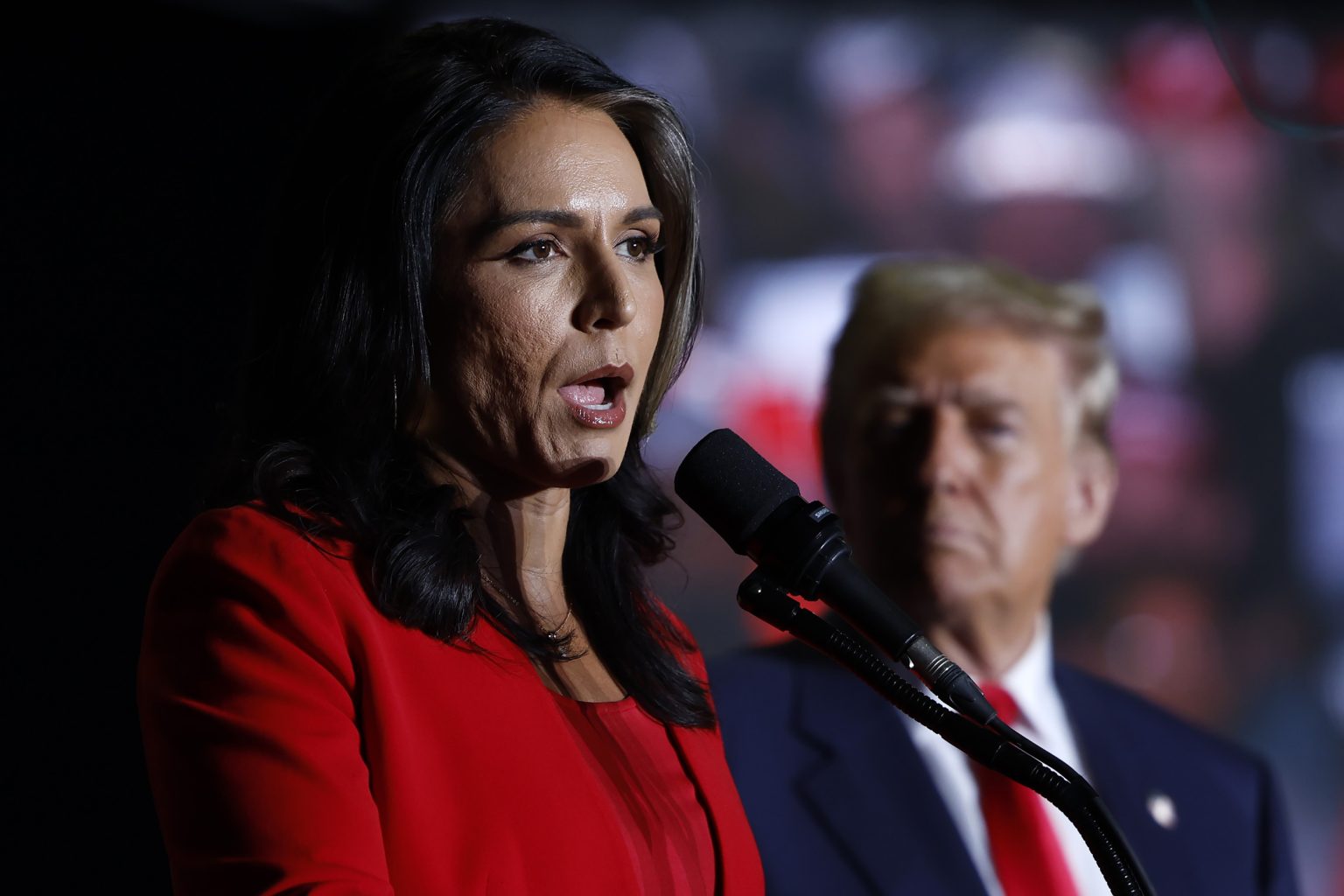Former Democratic U.S. Representative Tulsi Gabbard of Hawaii announced her decision to join the Republican Party during former President Donald Trump’s rally in North Carolina. Gabbard praised Trump for bringing the Republican Party back to being a party of the people and peace. She stated that the Democratic Party no longer has a home for independent-minded individuals who love their country, the Constitution, and freedom, but she feels welcomed in the Republican Party. Gabbard’s announcement comes after she endorsed Trump’s presidential bid in 2020.
Gabbard, who previously ran for the Democratic presidential nomination in 2020, endorsed Trump’s bid for president in August. This endorsement came shortly after President Joe Biden stepped down from the race and Vice President Kamala Harris launched her campaign. Trump expressed surprise at Gabbard’s decision to join the GOP, stating that she had been independent for a long time. Trump described Gabbard’s move as a great honor and a positive development within the party. The announcement marks a significant shift for Gabbard, who has always been known for her independent and non-partisan approach to politics.
The news of Gabbard’s decision to join the Republican Party has sparked interest and speculation within political circles. Gabbard’s move represents a departure from the Democratic Party, where she has been a long-time member. By aligning herself with the GOP, Gabbard is making a statement about her beliefs and values, including a commitment to the Constitution and freedom. Her endorsement of Trump’s presidential bid and subsequent decision to join the Republican Party indicate a shift in her political ideology and alliances.
As a former Democratic representative, Gabbard’s decision to join the Republican Party has implications for both parties and for the political landscape as a whole. Her move may signal a broader trend of politicians switching party affiliations or aligning with different ideological camps. Gabbard’s announcement at Trump’s rally underscores the changing dynamics within the GOP and the broader political arena. It will be interesting to see how her transition to the Republican Party impacts her career and future political prospects.
Gabbard’s decision to join the Republican Party has drawn attention to the divisions and realignments occurring within American politics. Her shift from the Democratic Party to the GOP reflects broader trends of polarization and ideological shifts across the country. Gabbard’s announcement has sparked debate and discussion among political analysts and commentators about the implications of her move. As she embarks on this new chapter in her political career, Gabbard’s alignment with the Republican Party will be closely watched and scrutinized by both supporters and critics.
Overall, Tulsi Gabbard’s decision to join the Republican Party represents a significant development in American politics. Her move from the Democratic Party to the GOP highlights the changing dynamics and alliances within the political landscape. Gabbard’s endorsement of Trump and her decision to switch parties signal a new phase in her political career, one that will likely shape her trajectory and impact future electoral outcomes. As she aligns herself with the Republican Party, Gabbard’s actions will have lasting implications for both parties and for the broader political discourse in the United States.


